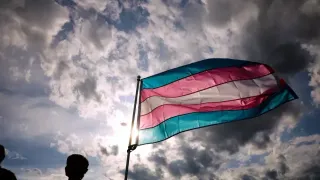June 28, 2015
Racine Selects Williams and White for Temporary Appointments
Kilian Melloy READ TIME: 2 MIN.
Attorney General Karl Racine announced on Thursday that he has named two former candidates for Attorney General and the D.C. Council to join the Office of the Attorney General's (OAG) community outreach team.
Local activists Lateefah Williams and Trayon White will be named community development specialists through the end of fiscal year 2015, which ends on Sept. 30. Both are being brought on specifically to engage communities with whom they have significant influence.
Williams, a former Attorney General candidate and an out lesbian, is best known for her activism in Democratic politics, her stint as president of the Gertrude Stein Democratic Club, and her policy work on behalf of the local transit workers' union. She will be engaging in outreach and education with organized labor and LGBT groups.
White, a former member of the D.C. State Board of Education, is best known for his work with youth. He will be doing outreach with at-risk youth, groups focused on juvenile justice, groups opposing synthetic drugs and communities east of the Anacostia River.
"Both Lateefah Williams and Trayon White have successful experience reaching out to District residents from a wide array of backgrounds - including those from communities that too often are marginalized or overlooked," Racine said. "They will help OAG move into a new era of connecting the public with our office's assistance and expertise as we serve the best interests of all residents of the District of Columbia."
The emphasis on outreach comes as Racine, the District's first democratically-elected Attorney General, seeks to make a name for himself and educate residents about the role his office plays in consumer protection, anti-violence and anti-drug initiatives. Racine is also seeking to define the extent of his power in city government, as well as tout his independence and distinguish himself from Bowser, who, as a councilmember, voted to delay the election of an independent attorney general.
Racine lost the LGBT Gertrude Stein Democratic Club endorsement to Edward "Smitty" Smith during the 2014 campaign. The addition of Williams and White, as people able to reach out to communities that were not overwhelmingly supportive of Racine, is a step toward establishing trust and rapport with those constituent groups.
 Copyright MetroWeekly. For more articles from MetroWeekly visit
Copyright MetroWeekly. For more articles from MetroWeekly visit 





